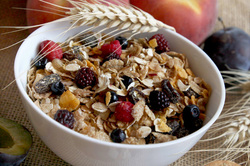 The overarching umbrella to all other things are principles. Living by principles tells the story of who you are. It certainly feeds our emotional, intellectual needs and even our spiritual needs. It affects our relationships for better or for worse. It is the very soul and conscience of who you are and who you want to be. The peaceful feeling, knowingness and energy you will have tells you that you are living right by your principles. Making decisions based on correct principles cultivates wisdom, integrity, trust, sincerity, honesty, confidence, perseverance and dependability. All good things. We are all busy, and have life demands, circumstances and situations that test us. Reacting to those situations isn’t peaceful. Living and practicing a principled centered life is essentially “doing the right thing”…and we all know that is sometimes the hardest thing to do. Here are some great reasons to stay on track and live right. 10 Benefits of Living a Principle Centered Life:
10 Actions to Peace:
Health Inspires.
2 Comments
 My prediction for 2014 is that there will be a study published claiming something is bad for you. I also predict, there will be a study published that claims something is good for you. My final prediction is that both scenarios will have had a reverse finding in the past. I bet you knew that! Although there are holes in most every study, some scientific findings provide valuable data that lead to protocols, guidelines and standards of care for certain diseases and risks such as heart disease and the treatment of high blood pressure, for example. The daily dietary fiber recommendations for disease prevention comes from studies. Based on studies, The Institute of Health established these recommendations for daily fiber intake:
A recent meta-analysis published December 19, 2013 in the BMJ (British Medical Journal), found for every 7 grams of dietary fiber eaten, the risks of CVD (Cardiovascular Disease) and CHD (Coronary Heart Disease) were each lowered by 9%.1 A meta-analysis is a review of several studies, on a specific topic, from specific databases and time period. In this case, 22 studies were analyzed specific to CVD and CHD by Diane Threapleton, a doctoral student at the University of Leeds, UK, et al. The conclusions were that “Greater dietary fiber intake is associated with a lower risk of both cardiovascular disease and coronary heart disease.” Greater intakes of insoluble fiber from cereal and vegetable sources reduced the risk of CHD and CVD, and fruit fiber intake was associated with a lower risk of CVD.1 Fiber has consistently, clinically proven to prevent disease risks associated with specific cancers and heart disease, withstanding the test of time; i.e. ...not a fad. It truly is another way of saying “eat your veggies, eat your fruits and eat your whole grains, eat less refined and processed foods and less sugar”. We can each improve our health, prevent disease and reduce our reliance on medications by eating more fiber. Fiber is found in plant foods and for the most part, is not digested by human digestive enzymes. Fiber makes you feel full longer so you are not as hungry and therefore aids in achieving a healthy weight, helps control blood sugar levels, lowers cholesterol and helps maintain bowel health and normalizes bowel movements. It is divided into two categories; soluble (partially dissolves in water) and insoluble (does not dissolve in water). Soluble fiber is found in fruits (apples and citrus), oats, barley and legumes.
Ways to easily increase your fiber intake:
Action: Focus on at least one of these 8 ways to increase your fiber intake that will work for you. Start today. Other good habits will naturally follow. The following list of “high fiber foods” ARE your “super foods”, your “cancer fighting foods”, your “anti-inflammatory foods”, your “antioxidant and phytochemical foods”. These food lists overlap. They all have health benefits. They all help you shed pounds, promote health and prevent disease. Look at this list and also reference my defined “super foods” list (defined by healthy and transportable). Find some foods that you like and add those to your daily/weekly diet for extra fiber. Food Amount Fiber in Grams Turnip Greens, boiled 1 cup 5.0 Raspberries 1 cup 8.0 Bananas 1 medium 3.1 Apple, with skin 1 medium 4.4 Sweet Potato 1 medium, baked 3.0 Almonds 1 ounce or about 23 nuts 3.5 Whole Wheat Bread 1 slice 1.9 Black Beans 1 cup 15.0 Broccoli, cooked 1 cup 5.1 Carrots 1 medium 1.7 Oatmeal 1 cup 4.0 Bran Flakes 3/4 cup 5.3 Raisin Bran 1 cup 8.0 Brown Rice 1 cup 4.0 Garbanzo Beans 1 cup 12.0 Peas and Carrots, cooked from frozen 1 cup 4.0 Health Inspires 1BMJ 2013;347:f6879 Dietary fibre intake and risk of cardiovascular disease: systematic review and meta-analysis (Published 19 December 2013) |
Kathryn ScoblickMy passion and purpose is helping people reach their full potential and master their wellbeing. Categories
All
Archives
February 2021
|
|
Disclosure: Always consult with your physician or other qualified health care provider before beginning any diet or exercise program and ask whether you are healthy enough to engage in a diet and exercise program. Never disregard, avoid or delay in obtaining medical advice from your doctor or other qualified health care provider concerning your overall health and wellness, including your physical, mental and emotional wellbeing. If you have or suspect that you have a medical problem or condition, please contact a qualified health care professional immediately. It is your choice to follow the suggestions, opinions and advice given by a Health Inspires wellness coach.
|
